The Philippines, a rapidly developing nation in Southeast Asia with a population of 113.9 million (as of 2021) and English as an official language, is witnessing a surge in mobility. Every year, a substantial number of Filipino students express a keen interest in pursuing international education. These students encompass a broad spectrum, with some seeking scholarships and others exploring bachelor’s programs for future career prospects and potential immigration pathways. Canada and Australia stand out as prime destinations of choice for these students. With the proximity to China and a sizable ethnic Chinese population of one million, if the focus is placed on addressing career-related concerns, this presents a significant growth opportunity in the education market.
The Philippine Market
The Philippines has experienced remarkable economic growth in recent years, with an average annual growth rate of 6.4% between 2010 and 2019. This transition from an agricultural economy to a newly industrialized nation has paved the way for competitive sectors like electronics, automobile manufacturing, and business process outsourcing. The country boasts a robust consumer market driven by a young, educated workforce, urbanization, and significant foreign remittance.
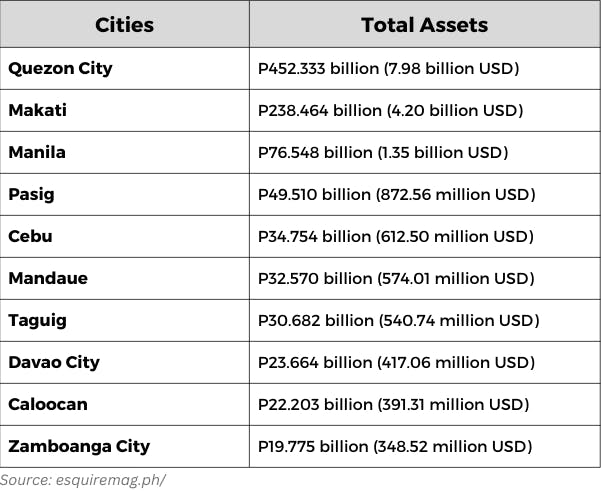
The Philippine Education System
Understanding the education system is crucial when targeting Filipino students. The Philippine education system encompasses formal and non-formal education. It is divided into basic, technical-vocational, and higher education, each under different agencies. These agencies are the Department of Education (DepED), the Technical Education and Skills Development Authority (TESDA), and the Commission on Higher Education (CHED).
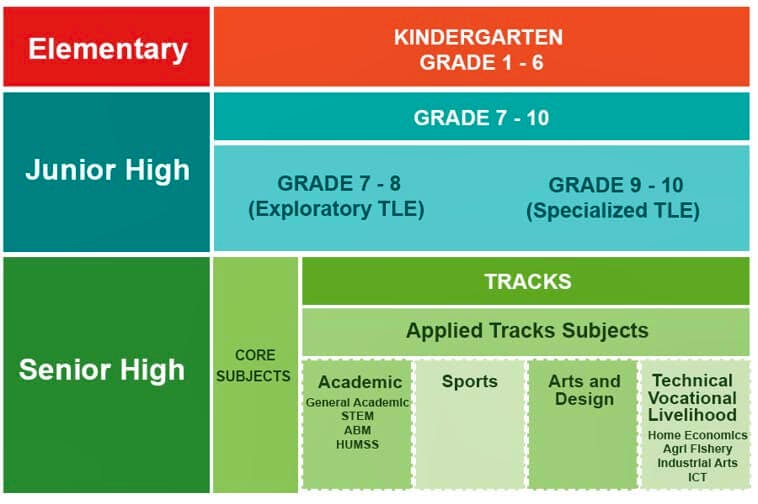
The basic education system comprises a 13-year four-stage program catering to different age groups. While public schools dominate the basic education landscape, making up 83% of all institutions, the country’s diverse education history, population growth, and reforms have shaped the system.
International Filipino Students’ Market
The international Filipino students’ market is on an impressive growth trajectory, expected to increase by 13% annually over the next five years. This surge is mainly driven by students pursuing postgraduate studies. Currently, an estimated 49,000 Filipino students are studying abroad, making this market one of the largest in Southeast Asia.
Notably, China has shown significant interest in fostering educational ties with the Philippines, further enhancing the cooperation in education that dates back two decades. This includes support for Philippine students to study in China and facilitate their return for further studies.
The Chinese foreign minister said that “China supports more Philippine young people to study in China and will facilitate the return of the Philippine students to China for their studies. ”
Potential Audience in Target Markets
To effectively tap into the Filipino student recruitment market, universities should consider targeting various segments, including:
- Students and faculty from leading universities and colleges, including subsidiary schools
- Working professionals (middle to upper management)
- Students from international schools
- Parents of potential students
- Students from affluent families attending upper-class private schools
- Foreign nationals in the Philippines, such as Japanese and Chinese, including those in English Language training institutions
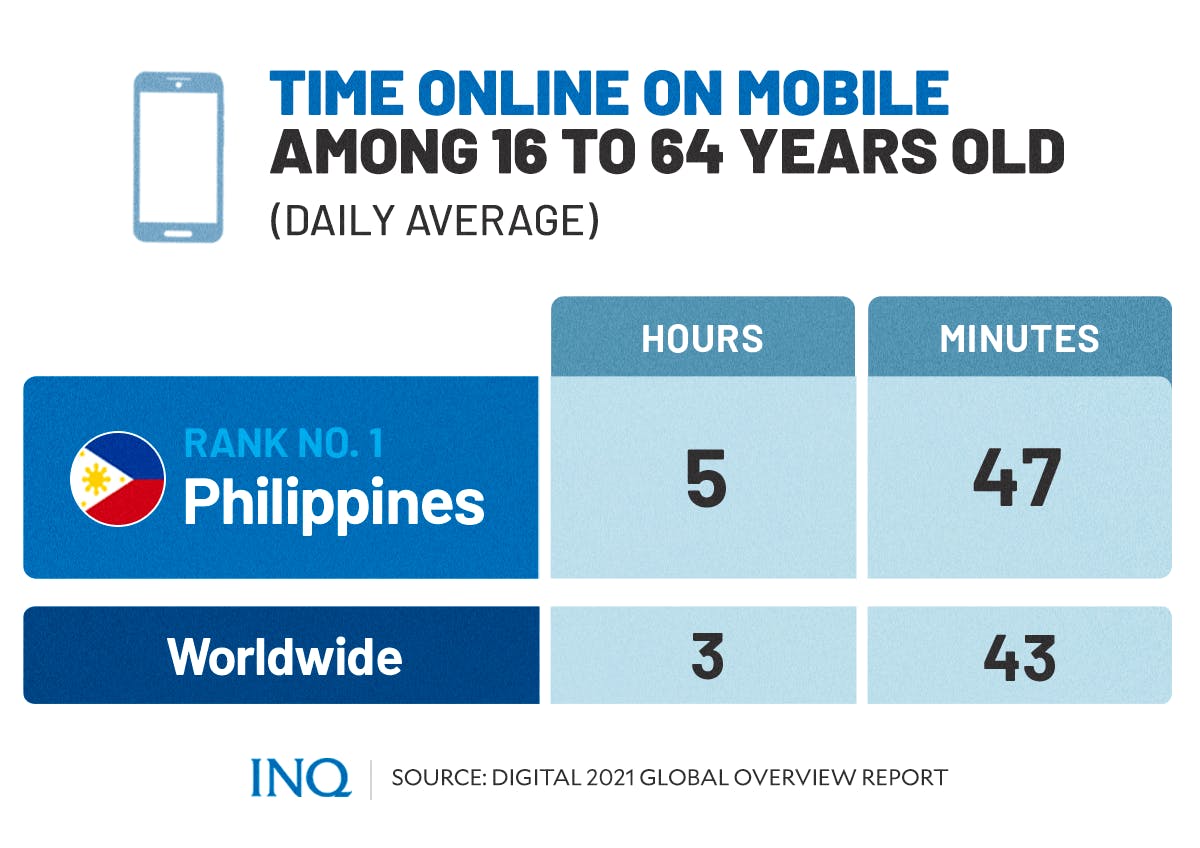
Filipinos are highly active on social media, with platforms like Facebook (80.3 million users), Twitter (11.8 million users), TikTok (43.4 million users), Instagram (17.55 million users), and YouTube (57.7 million users) being particularly popular platform for social video streaming. LinkedIn’s usage (13 million users) has also been growing among newly graduated students and young professionals.
Leveraging these platforms for recruitment and promotion can be highly effective, as Filipinos spend an impressive 10 hours per day, seven days a week on social media.
Top Study Destinations of Filipino Students
Australia stands out as the preferred destination for Filipino students seeking overseas education. Other popular options include Canada, the United States, the United Kingdom, Japan, and New Zealand. Factors like proximity, language, employment opportunities, and the influence of Filipino students already studying in these countries play a pivotal role in their choices.
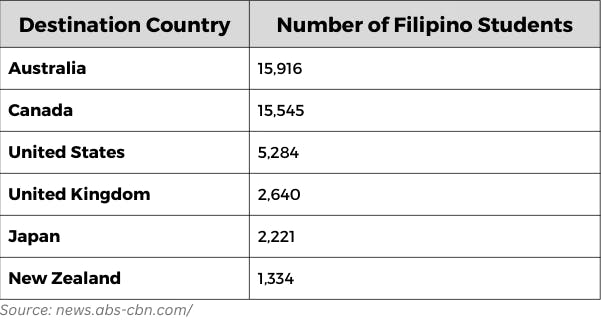
Finances remain a significant challenge for many Filipino students, along with a lack of information on entry routes and pathways in education.
Popular Programs
In the Philippines, certain fields of study have gained immense popularity among students seeking international education opportunities. These preferred programs include:
- Health and Medicine: Aspiring doctors, nurses, and healthcare professionals flock to universities offering programs in health and medicine. The Philippines places a high value on healthcare education, and studying abroad in this field opens up diverse career prospects.
- Business and Management: Business courses, including MBA programs, are highly sought after by Filipino students. These programs equip students with valuable skills and knowledge for career advancement in the corporate world.
- Engineering: Engineering disciplines attract Filipino students due to the promising career prospects and the opportunity to contribute to technological advancements.
- Information Technology: Given the global demand for IT professionals, Filipino students are keen to pursue degrees in information technology, preparing them for careers in software development, cybersecurity, and more.
- Post-Graduate Courses: Postgraduate education, especially MBA and business-related courses not offered locally, is a preferred choice among those looking to further their career prospects with advanced qualifications.
- Further or Continuing Education: Fields like Arts and Design, Nursing, Hospitality, and Culinary Arts offer specialized training that appeals to students seeking hands-on skills and expertise.
Factors Influencing Decision-Making
When Filipino students decide to study abroad, several factors influence their choices:
- Language: English-taught programs are highly preferred, making English-speaking countries more appealing. However, the availability of international schools offering English-language education in non-English speaking countries, such as China, can change this dynamic.
- Work Opportunities: The ability to work while studying is a significant advantage for Filipino students. It provides them with valuable work experience and financial support during their education.
- Motivations: Career development, education quality, knowledge acquisition, and overseas work opportunities are primary motivations for studying abroad. The pursuit of academic excellence, scholarship opportunities, and international recognition of qualifications also play key roles.
- Family Ties: Filipinos often prefer countries where they have family ties, as it provides a support system and a sense of belonging.
Motivations for Pursuing Studies Abroad
The motivations driving Filipino students to seek education abroad are diverse and include:
- Career Development: Advancing one’s career is a top priority for many Filipino students, and studying abroad can provide them with the skills and qualifications necessary for success. They want to gain an advantage when it comes to getting a job.
- Overseas Work Opportunities: The prospect of working abroad, either during or after studies, is a strong motivator, as it can lead to better job prospects and potentially permanent residency.
- Prestige: Studying abroad is seen as prestigious in Filipino culture, and it carries a certain status and recognition.
- Family Support: Parents often place a high value on education and are willing to invest in their children’s overseas education.
- Cultural Exposure: The opportunity to experience different cultures and travel to various countries is another compelling factor.
Primary Financial Resources
When it comes to financing their international education, Filipino students rely primarily on:
Scholarships: Scholarships are a crucial financial resource, enabling many students to pursue their dreams of studying abroad.
Personal Financial Resources: Family and friends often provide financial support, allowing students to cover tuition fees and living expenses.
A Pathway for Chinese Universities
As we conclude our exploration of the international student recruitment market in the Philippines, it’s essential to recognize the tremendous potential that lies in the collaboration between Chinese universities and Filipino students. The Philippines-China educational cooperation, though often conducted quietly, holds significant promise for Chinese institutions seeking to diversify their student body and create a more globalized academic environment.
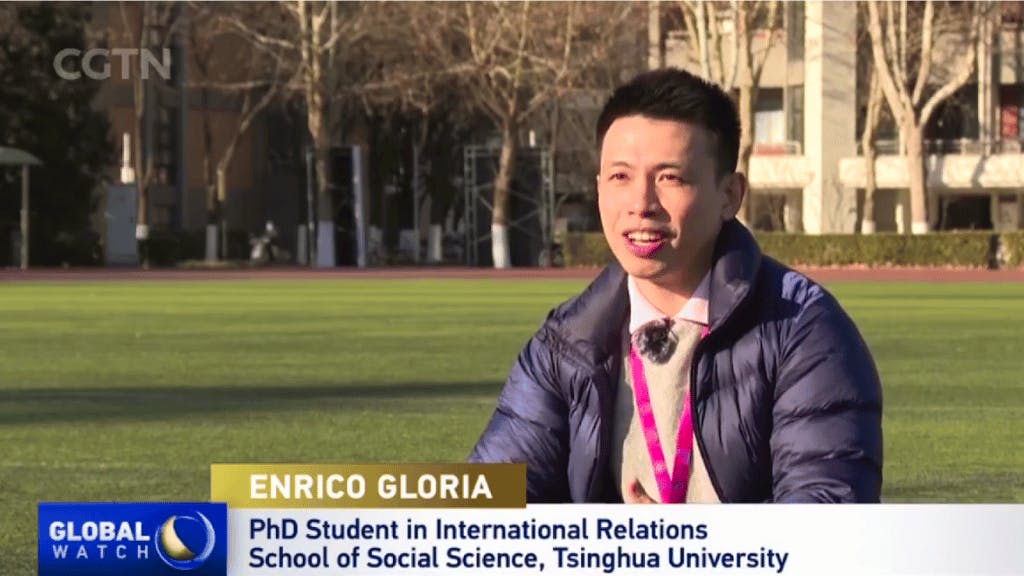
Enrico Gloria, a Filipino student studying in Tsinghua University, emphasizes the importance of understanding the long history of Philippine-China relations. As the educational cooperation between the two countries deepens, it not only benefits individuals but also contributes to a strong, peaceful, and prosperous bilateral future.
Read the full details in this article.
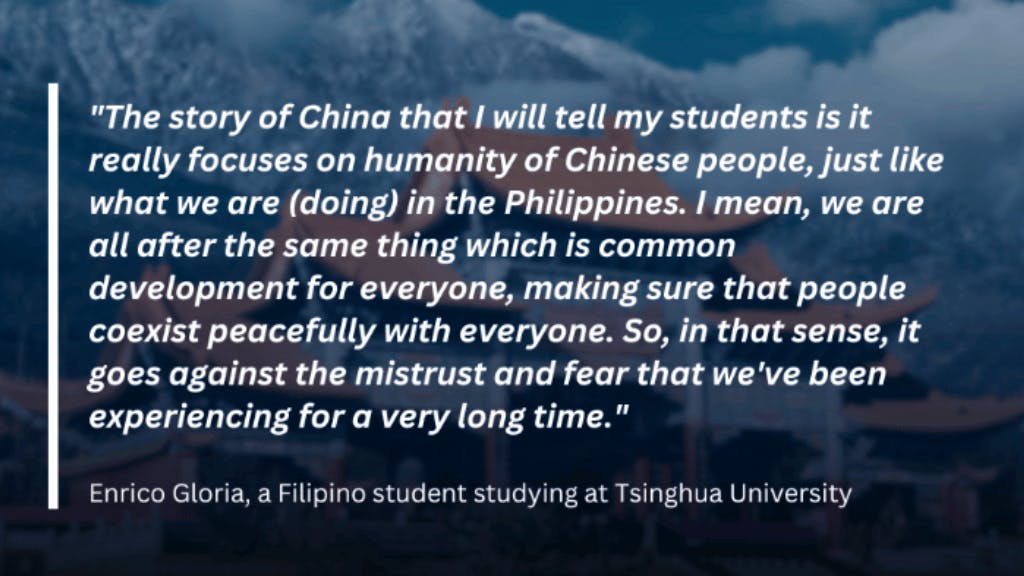
By understanding the motivations, preferences, and aspirations of Filipino students, Chinese universities can strategically position themselves to attract top talent from the Philippines. As Filipino students increasingly seek opportunities abroad, especially in English-taught programs, China has the chance to become a preferred destination. This collaboration not only benefits individual students but also contributes to building stronger academic bridges between the two nations.
In the past millennia, China brought diverse culinary influences to the Philippines. Today, it can bring the gift of educational enrichment, fostering a strong, peaceful, and prosperous bilateral future that extends its reach to neighboring nations.
Chinese universities are encouraged to embrace this unique opportunity, recognizing that by opening their doors to Filipino students, they can truly become global centers of learning.
